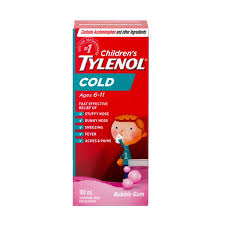Understanding Tylenol: Uses, Benefits, and Recent Developments

Introduction to Tylenol
Tylenol, a well-known brand of acetaminophen, serves as a crucial over-the-counter medication commonly used for pain relief and fever reduction. With its widespread use in households across the United Kingdom and beyond, Tylenol holds significant importance in managing everyday ailments such as headaches, muscle aches, and cold symptoms. Understanding the applications and emerging findings regarding Tylenol is vital as it affects millions seeking effective pain management solutions.
Recent Developments in Tylenol Use
Recently, the usage of Tylenol has come under the spotlight amid discussions on over-the-counter medications and their long-term health implications. Public health agencies and researchers have examined the recommended dosages and potential risks associated with excessive use. In contrast to its benefits, such as quick pain relief and lower fever, it is essential for consumers to be informed about the importance of moderation and adherence to advised dosages to prevent several health issues, including liver damage.
Moreover, with the ongoing discourse about alternative pain relief methods, some healthcare professionals are advocating for integrating Tylenol with other forms of pain management. Combining therapies may enhance relief effectiveness while lowering dependency on higher-dose medications, particularly in chronic pain patients.
Practical Considerations for Tylenol Users
As exposure to Tylenol increases, safety measures are critical for public health. It is recommended by health professionals that individuals be cautious when consuming Tylenol alongside other medications, particularly those containing acetaminophen to avoid overdosing inadvertently. Additionally, pregnant women and individuals with pre-existing liver conditions should consult with healthcare providers before using Tylenol.
Conclusion and Future Outlook
In summary, Tylenol plays a vital role in providing pain relief and remains a staple in many households. However, awareness of its potential risks and the importance of adhering to guidelines is paramount for safe use. As new studies continue to emerge surrounding the efficacy and safety of Tylenol, it is expected that recommendations and prescribing practices may evolve in response to new health insights. For consumers, staying informed about the latest research can aid in making safer and more effective choices regarding pain management.









